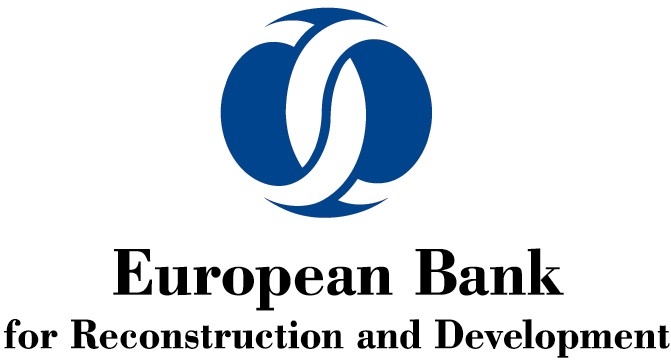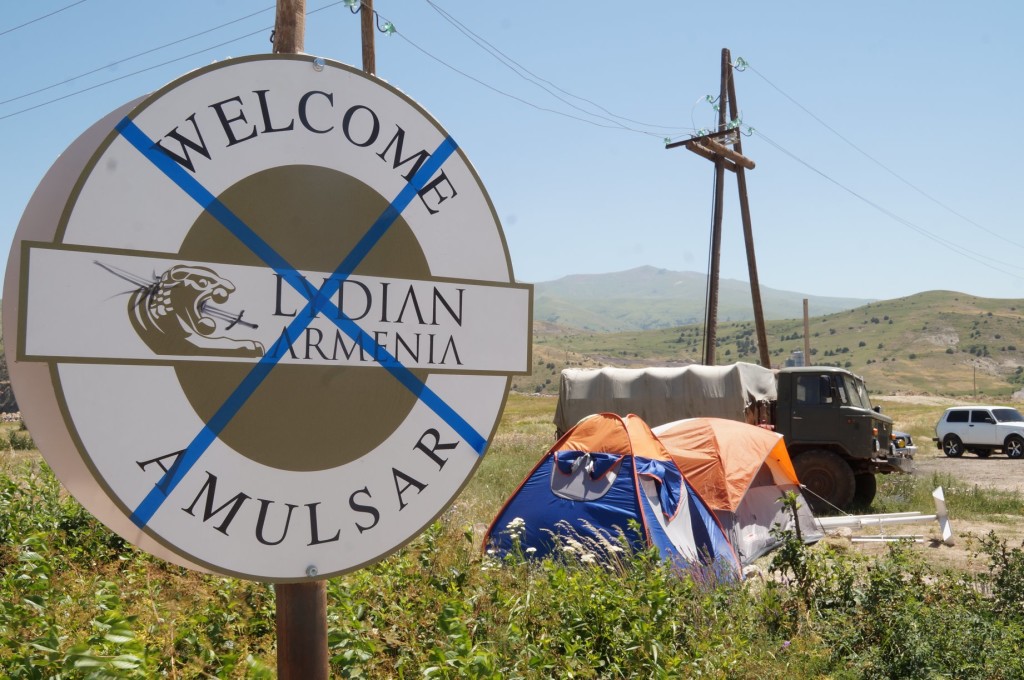Free Condoms for EBRD – one of the Investors of the Amulsar Gold Mine (video)
On March 7, 2017, European Bank for Reconsruction and Development (EBRD), together with the representatives of the European Union and the Swedish Government, were presenting a project funded by their respective institutions and titled “Business woman” at Armenia Mariott hotel, Yerevan. The members of the Armenian Environmental Front intervened in the event to present the mammoth problems that Amulsar gold-mining project, which EBRD supports, would cause for the population of Armenia and particularly for women and children.
The European officials were offered condoms together with an info-leaflet; hereby we present the leaflet to the public and press.
EBRD Promotes Plunder through Mining, Mining Pushes Women into Sex-Work. Business Women?
STOP THIS HYPOCRYSY! DON’T HIDE BEHIND BUSINESS-ORIENTED CLICHES AND NEOLIBERAL POPULIST PROJECTS! STOP GENDER-WASHING, WHILE THE GREATEST HARM TO WOMEN COMES FROM YOUR BANKING POLICIES!
STOP FINANCING AMULSAR MINING PROJECT!
Lydian International Limited, the offshore company that got financial support from EBRD and IFC to explore a gold mine in the mountain of Amulsar near Jermuk and wishes to open strip the mountain, comissioned and ESIA–Environmental and Social Impact Assessment, (chapter 6.12, chapter 6.18), officially presented in May 2016, clearly acknowledges the following.
“Development of the Amulsar project has implications for various aspects of the demographic profile of the local population. Key issues include increases in population through bringing new workers to the area and potentially encouraging an influx of opportunistic migrants and changes to existing social structures. […] The construction phase will require a peak workforce of approximately 1300 workers. Due to the skills needed for construction, it is anticipated that approximately 70% of the construction workers will be sourced from other parts of Armenia and potentially other countries. A worker accommodation camp, with capacity for between 500 to 920 workers, will be built by the Company to accommodate the majority of non-local construction workers together with the use of hotel and apartments within Jermuk. […] The operations phase will require a workforce of approximately 657 people. During the operational period, hotel accommodation in Jermuk will be used by Lydian to accommodate approximately 250 workers. These workers are assumed to be professionals who are not from the local area, who will work on a rotational basis, returning to their families and point of origin on a regular basis. 30% of the workforce are recruited locally.
[…]Combining these figures would suggest there is potential for over 1000 people to migrate into the communities during the operations period, of which a significant proportion might be single males. The effects of this potential influx will not be felt evenly within the villages, with Jermuk likely to experience the greatest impact from influx due to the location of the project activities and accommodation locations and the attractions and opportunities that a city of this size can offer. […]Unmanaged influx into the Project area can have the potential negative impact of decreasing the standard of living due to increased pressure on local resources and existing infrastructure. Such pressure can impact community resources like schools and health facilities or exceed the capacity of community infrastructure. Potential impacts are discussed below: Education, Sewerage, Water, Waste. […] Similar Projects in other parts of Armenia and the world provide a solid indication of some issues that commonly emerge when large numbers of workers, mostly men living without their families, are placed in a community with which they are not familiar. […]Similar projects have experienced increased alcohol consumption, new or widening commercial sex networks and prostitution, closely associated to problems with sexually transmitted diseases and an increase in crime and violence in communities proximal to their operations. These impacts will disproportionately affect women and girls within the local communities either directly or indirectly.
[…] The Project will influence the increased transmission of sexually transmitted infections (STIs) through the “four m’s” of “men, money, mobility and mixing”. This is an acronym that is often used to describe the influence of extractive industry development and determinants that may influence an increased risk for the transmission of STIs. […]People (generally men) who benefit directly and indirectly from the Project may have more money available to partake in forms of transactional sex. The poor and vulnerable sectors in the community may be more susceptible to advances for opportunistic transactional sexual encounters with the risk of a “sugar daddy” phenomenon developing, where men that have disposable income entice young girls, who are vulnerable through poverty and lack of opportunity, into transactional sexual relationships. […] The temporary construction workforce is a high-risk group as they will have disposable income with limited entertainment opportunities. Those workers residing in the temporary camp (between 500-920 workers) will have limited exposure to communities, minimising this risk. However, up to 370 workers may reside in hotel accommodation in Jermuk during the peak of construction making commercial and transactional sexual relations likely in the communities in the study area.
[…] All communities are susceptible to the impacts related to social issues, though Jermuk will be most likely to experience changes because it will accommodate up to a maximum of 370 workers during construction and approximately 250 workers during operations. Gndevaz is also likely to be impacted through its relative proximity to the temporary construction worker’s camp. […] The magnitude of the impact is high as the characteristics of the town of Jermuk change (from a family tourist area to an area that also will accommodate a significant proportion of the mine workforce). These workers will live in Jermuk for several years and will therefore alter the balance of tourists to semi-permanent workers for the duration of the mine’s life.”
To mitigate issues related to prostitution and spread of sexually transmitted infections, the company plans to not only support women’s empowerment and education programs to avoid the temptation to be involved in forms of transactional sex work, but also ensure widespread availability and social marketing of condoms in the workplace and accommodation areas.
To access the full ESIA, visit EBRD’s website http://www.ebrd.com/work-with-us/projects/esia/dif-lydian-amulsar-gold-mine-extension.html.
SWEDEN’S STATE EXPORT CREDIT FUND ALSO PLANS TO FINANCE AMULSAR MINING
For more information on this topic read the article “Amulsar mine and vague future of Jermuk according to Lydian” and the following analysis “Tracing the Overrated Standards of International Banks (IFC, EBRD)”.
Armenian Environmental Front (AEF)
Email: armecofront@gmail.com







